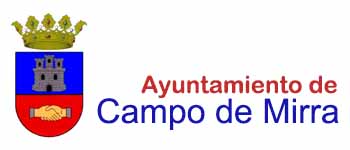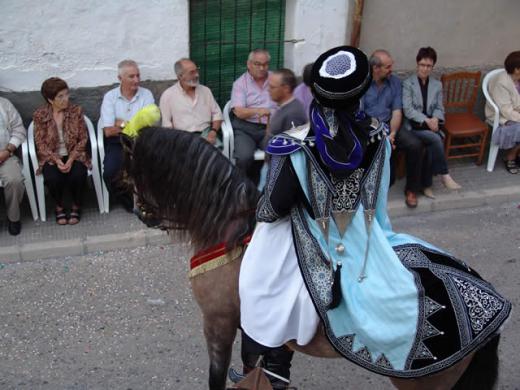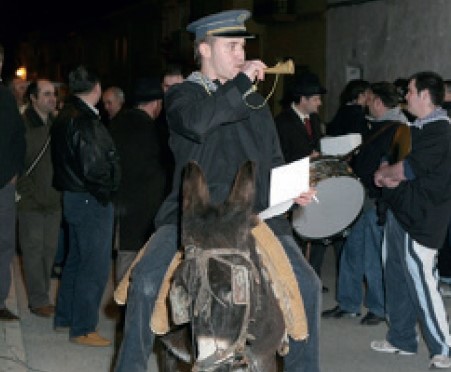Main Festivities
Main Festivities
The main festivities are “Les Festes Majors“, which are celebrated from August 22nd to 26th, in honor of the apostle San Bartolomé and the Saints Abdón and Senén, former patrons of the Valencian farmers, popularly known as “Els Santets de la Pedra “
The images are venerated in the hermitage built on the site of the castle of Almizra, of which a tower remains attached to the religious building. The eve of the holidays are transferred to the population in popular pilgrimage.
Along with the different religious celebrations, the festivities are completed with parades of Moors and Christians, embassies, “les cordaes” of rockets, verbenas …
The historical acts celebrated during the festivities, specifically on August 25, are:
– The “Pregó anunciador del Tractat d’Almirra” in which a herald on horseback, and accompanied by the local music band crosses the streets of the town announcing on behalf of D. Jaime I, the immediate celebration of the pact with the infant from Castilla
– The “Representació del Tractat d’Almirra“, the most peculiar act, in which the pact is revived between Jaime I, “El Conqueridor”, and the Infante D. Alfonso de Castilla (Alfonso the Wise). It is a bilingual work, elaborated according to the “llibre dels Feits” and texts by Salvador Doménech Llorens.
ARGUMENT: By the pacts of Tudillén (1151) and Cazola (1179), the kings of Aragon and Castilla had already established the lands of future conquest in the Arab territory that today forms the Comunidad Valenciana. Nevertheless, certain disagreements arose between both monarchs in September of 1243 by the conquest of Xàtiva, forced Jaime I to cross the stipulated border, penetrating lands of Castilian conquest, seizing Villena and Sax, submitting at the same time “Els capdets “And” Burriharon. “
Given the seriousness of the situation, it was imposed an interview between Aragonese-Catalans and Castilians, in order to resolve the existing differences, close to an open war between the two Christian kingdoms. Las pretensiones castellanas eran que la villa de Xàtiva debía ser entregada al infante Alfonso como dote de promesa de su futura mujer Violant, la hija del propio Jaime I y Violant de Hungría. The king argued that when he got married he did not receive any dowry in lands and that Xàtiva for the previous pacts was for Aragonese conquest.
The Castilians, without arguments, said that Xativa would be Castilian, because the Moor Major would give it to the Infante. This irritated King Jaume I, making him shout: “Whoever in Xàtiva will want to enter, over us will have to pass”.
The prayers and tears of Queen Violant, wife of the monarch and the new proposals of the Castilian Infante, appeased the natural indignation of the King. The conflict ended happily with a Treaty in which the limits of the respective conquests were fixed. With that, the first southern border of the old Kingdom of Valencia was established. The treaty was signed at the Castle of Almizra on March 26, 1244, with the presence of bishops, gentlemen, wealthy men and teachers of military orders.
Regarding festive gastronomy, on August 24th (patron’s day) it is typical to eat “Putxero and fasegures”.



